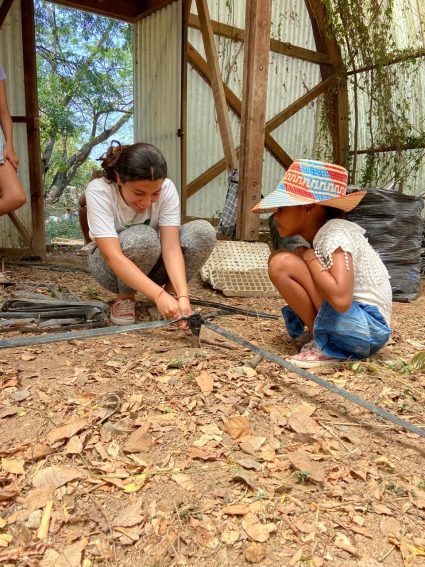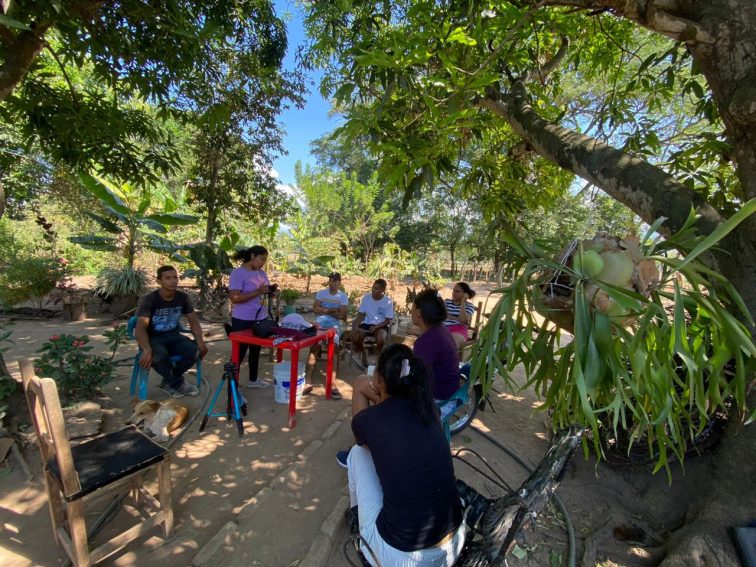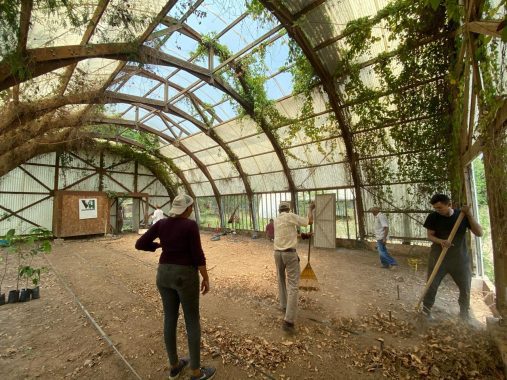Confronting global power dynamics and advocating for justice and human rights
Monday, June, 10th, 2024 News
By: Miguel Angel Castañeda Barahona
Bard College, United States

Bard College, placed in the culturally rich Hudson Valley of New York, serves as a hub for intellectual discourse and activism on a global scale. Despite being a newcomer from Bogotá, I recognize Bard’s influence in shaping debates on human rights. This influence holds weight particularly as New York, a city continuously inundated with immigrants from various corners of the world, grapples with migration crises exacerbated by geopolitical dynamics and internal policies. The United States’ involvement in global affairs often leads to mass migration to its shores, yet its internal policies struggle to reconcile with the influx, creating a complex landscape where Bard’s contribution is pivotal.
My experiences in Colombia’s La Guajira region shed light on the grassroots struggles against coal mining,exemplified by the Los Negros de Cañaverales Community Council. Despite government efforts to prioritizerenewable energy, multinational corporations exploit loopholes to extract coal, disregarding the communitiesaffected. My involvement in the community’s resistance highlighted the importance of informed decision-making, culminating in a call for prior consultation regarding mining activities. However, the multinational’s failure to fulfill commitments and the absence of legal recognition for the community council impeded the consultation process, underscoring the challenges faced in safeguarding community interests amidst corporate interests.
The struggle of Cañaverales epitomizes the global tension between development and human rights. Through grassroots organizing and education, the community strives to counter corporate narratives of progress with the realities of environmental degradation and social dislocation. The ongoing attempts at consultation underscore the complexities of empowering marginalized communities within legal frameworks designed to favor corporate interests. Nonetheless, the experience serves as a testament to the resilience of communities and the importance of education and advocacy in empowering groups to assert their rights in the face of corporate encroachment.

In navigating the geopolitical landscapes of both Bard College and Cañaverales, the imperative remainsclear: to confront the challenges posed by global power dynamics and advocate for justice and human rightsat local and global levels. Bard’s role as an intellectual and activist hub positions it to address these challenges head-on, while the struggles of communities like Cañaverales underscore the urgency of suchefforts. As I navigate these complex terrains, I am reminded of the interconnectedness of local and global struggles and the transformative potential of informed activism and solidarity.
Through the project we have developed in the community, we have managed to understand that the defense of human rights depends on various guarantees that institutions must provide to communities. That is to say,the ability to implement political projects in the territory has certain limits based on security, for example. It is here where we have situated the gap between the ability to defend human rights in a context like Bard College and another context like that in the south of La Guajira. These are different contexts. But what is more interesting is that despite the complicated security situations in the Colombian context, communities insist on defending their territories precisely because they have nowhere else to go, due to cultural roots and other circumstances.
 From grassroots social processes, the frameworks with which projects are designed, such as “Amplifying theVoices of Engaged Researchers Around the World,” must be updated. Committed research is not possible without the support of communities that commonly face situations of violence, economic hardship, and lack ofaccess to basic needs such as education, health, and food. What I want to emphasize is the effort that hundreds of anonymous individuals make to keep the struggle for human rights alive. I think of the Colombian context, in which illegal armed groups determine the normative framework within which actioncan be taken across hundreds of municipalities. Since the execution of this project, we have managed tounderstand that contexts provide the methodological frameworks for action. Without a correct understandingof what is happening politically, culturally, and economically in the territories, projects and research would only endanger both researchers and the inhabitants of those places. Committed research requires correct contextual readings, not heroic acts.
From grassroots social processes, the frameworks with which projects are designed, such as “Amplifying theVoices of Engaged Researchers Around the World,” must be updated. Committed research is not possible without the support of communities that commonly face situations of violence, economic hardship, and lack ofaccess to basic needs such as education, health, and food. What I want to emphasize is the effort that hundreds of anonymous individuals make to keep the struggle for human rights alive. I think of the Colombian context, in which illegal armed groups determine the normative framework within which actioncan be taken across hundreds of municipalities. Since the execution of this project, we have managed tounderstand that contexts provide the methodological frameworks for action. Without a correct understandingof what is happening politically, culturally, and economically in the territories, projects and research would only endanger both researchers and the inhabitants of those places. Committed research requires correct contextual readings, not heroic acts.
In conclusion, the narratives of Bard College’s global engagement and the grassroots resistance of the Los Negros de Cañaverales Community Council highlight the urgent need for holistic approaches to address contemporary challenges. Bard’s role in shaping international discourse on human rights underscores the interconnectedness of geopolitical events and local struggles for justice. Similarly, the community’s battle against coal mining exemplifies the ongoing tension between economic development and environmentalpreservation, as well as the importance of community empowerment and informed decision-making. As we navigate an increasingly complex anduncertain world, institutions like Bard College must continue advocating for human rights and fosteringdialogue, while also supporting local communities in their quest for autonomy and sustainability. By bridging theory and praxis, we can work towards a more equitable and sustainable future for all.